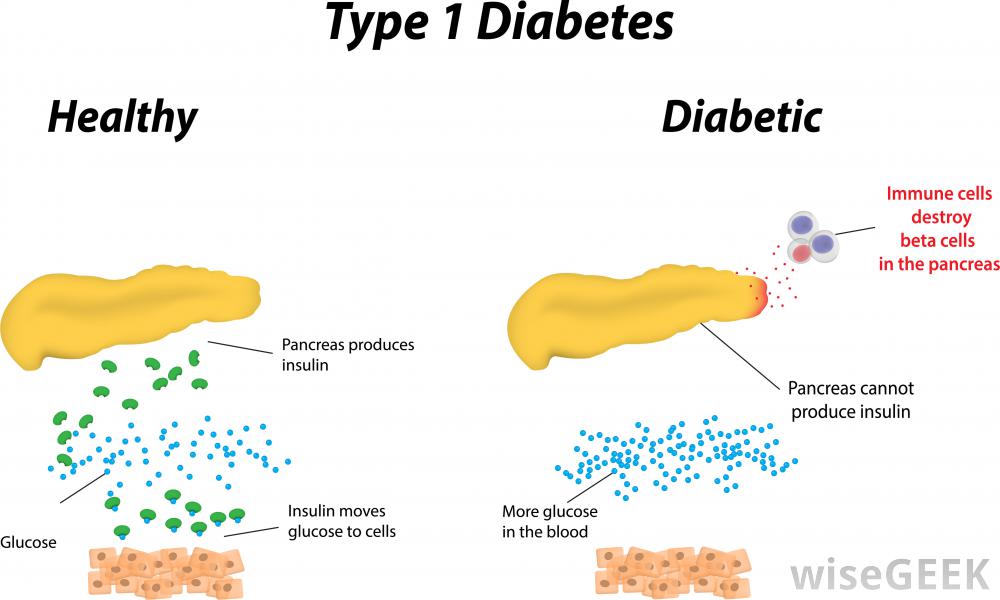Diabetes is a global health concern affecting millions worldwide, and it often intersects with public figures who serve as role models. Many people wonder if their favorite role models or public personalities have diabetes, and how they manage the condition. This curiosity stems from the desire to understand how diabetes impacts daily life, especially for those in the spotlight. In this article, we explore the concept of role models living with diabetes and what it means for their followers.
Diabetes is not just a medical condition; it's a lifestyle challenge that requires constant management. When role models, whether celebrities, influencers, or leaders, are open about their diabetes, they inspire others to take control of their health. This article aims to provide a comprehensive look at the intersection of diabetes and role models, offering insights and actionable advice for managing the condition.
Through this exploration, we hope to shed light on the importance of awareness, management, and support for individuals living with diabetes, particularly when role models step forward to share their journeys. Let's delve deeper into the topic and uncover the realities of diabetes in the public eye.
Read also:Bogo Subway 2025 Everything You Need To Know About The Buy One Get One Deal
Table of Contents
- Is Role Model Diabetic?
- Biography of Prominent Diabetic Role Models
- Impact of Diabetes on Role Models
- Diabetes Management Strategies
- Raising Diabetes Awareness
- Support Systems for Diabetics
- Lifestyle Changes for Managing Diabetes
- Nutritional Guidelines for Diabetics
- Role of Technology in Diabetes Management
- Future of Diabetes Care
Is Role Model Diabetic?
Many public figures, from celebrities to athletes, have diabetes. Their openness about the condition helps break down stigmas and encourages others to seek proper care. Understanding whether a role model is diabetic involves looking at their public statements, health advocacy, and lifestyle choices.
Diabetes affects individuals regardless of their social status or fame. Role models with diabetes often become advocates for healthier living, sharing their experiences to inspire others. This visibility is crucial in normalizing the condition and promoting awareness.
Why Do We Care About Role Models with Diabetes?
Role models influence our perceptions and behaviors. When they discuss their diabetes, it resonates with millions of followers. Their stories provide hope and practical advice for managing the condition effectively.
- Increased awareness of diabetes symptoms.
- Encouragement to seek early diagnosis and treatment.
- Empowerment through shared experiences and strategies.
Biography of Prominent Diabetic Role Models
Several well-known personalities have publicly acknowledged their diabetes, becoming powerful advocates for the cause. Below is a brief overview of some notable figures and their contributions to diabetes awareness.
Data and Biodata
| Name | Occupation | Diabetes Type | Advocacy Work |
|---|---|---|---|
| Tom Hanks | Actor | Type 2 | Raised awareness through interviews and public statements. |
| Carrie Fisher | Actress, Author | Type 2 | Spoke openly about mental health and diabetes. |
| Sherri Shepherd | Talk Show Host | Type 2 | Shared her journey on "The View" and other platforms. |
Impact of Diabetes on Role Models
Living with diabetes can be challenging, even for those in the public eye. Role models often face scrutiny over their health, making it crucial for them to manage their condition effectively. Their experiences highlight the importance of discipline, support, and education in diabetes management.
Challenges Faced by Diabetic Role Models
Public figures with diabetes must balance their demanding schedules with their health needs. This includes regular monitoring, medication, and lifestyle adjustments. Their ability to thrive despite these challenges serves as an inspiration to many.
Read also:Pointall A Comprehensive Guide To Mastering Point Systems And Maximizing Rewards
- Managing blood sugar levels during long work hours.
- Dealing with public perception and stigma.
- Staying committed to a healthy lifestyle amidst temptations.
Diabetes Management Strategies
Effective diabetes management involves a combination of medical care, lifestyle changes, and emotional support. Role models often share their strategies for staying healthy, offering valuable insights for others.
Key Management Techniques
From regular exercise to dietary adjustments, managing diabetes requires a holistic approach. Here are some strategies commonly used by role models:
- Regular monitoring of blood glucose levels.
- Incorporating physical activity into daily routines.
- Consulting healthcare professionals for personalized plans.
Raising Diabetes Awareness
Role models play a significant role in raising awareness about diabetes. Through public speaking, social media, and advocacy, they help educate others about the condition and its management.
Ways Role Models Promote Awareness
From hosting charity events to participating in awareness campaigns, role models contribute significantly to the diabetes community. Their efforts help reduce stigma and encourage proactive health management.
- Participating in diabetes walks and fundraisers.
- Sharing personal stories on social media platforms.
- Collaborating with healthcare organizations for outreach programs.
Support Systems for Diabetics
Having a strong support system is essential for managing diabetes effectively. Role models often emphasize the importance of family, friends, and healthcare professionals in their journeys.
Building a Support Network
Creating a supportive environment involves connecting with others who understand the challenges of living with diabetes. Support groups, online communities, and local organizations can provide valuable resources and encouragement.
- Joining diabetes support groups for peer interaction.
- Engaging with healthcare providers for ongoing care.
- Seeking emotional support from friends and family.
Lifestyle Changes for Managing Diabetes
Adopting a healthy lifestyle is crucial for managing diabetes. Role models often highlight the importance of making sustainable changes to improve overall well-being.
Practical Lifestyle Tips
From diet to exercise, small changes can make a big difference in diabetes management. Here are some tips shared by role models:
- Incorporating more fruits and vegetables into meals.
- Engaging in regular physical activity, such as walking or yoga.
- Practicing stress management techniques like meditation or deep breathing.
Nutritional Guidelines for Diabetics
Nutrition plays a vital role in diabetes management. Role models often emphasize the importance of eating balanced meals and avoiding processed foods.
Essential Nutritional Advice
Understanding the impact of food on blood sugar levels is key to managing diabetes. Here are some nutritional guidelines recommended by experts:
- Choosing whole grains over refined carbohydrates.
- Limiting sugar and salt intake in daily meals.
- Staying hydrated with water and avoiding sugary beverages.
Role of Technology in Diabetes Management
Advancements in technology have revolutionized diabetes care, offering innovative solutions for monitoring and managing the condition. Role models often embrace these technologies to enhance their health management.
Technological Innovations in Diabetes Care
From wearable devices to mobile apps, technology provides tools for tracking blood sugar levels and managing medications. These innovations make it easier for individuals to stay on top of their health.
- Using continuous glucose monitors (CGMs) for real-time data.
- Utilizing apps for meal planning and medication reminders.
- Accessing telehealth services for remote consultations with healthcare providers.
Future of Diabetes Care
The future of diabetes care looks promising, with ongoing research and development of new treatments and technologies. Role models often highlight the importance of staying informed about these advancements to improve health outcomes.
Emerging Trends in Diabetes Management
From personalized medicine to artificial pancreas systems, the future holds exciting possibilities for diabetes care. Staying updated on these trends can empower individuals to take control of their health.
- Exploring gene therapy for potential cures.
- Investigating the role of artificial intelligence in diabetes management.
- Adopting new technologies as they become available.
Conclusion
In conclusion, the question "Is role model diabetic?" highlights the intersection of public figures and diabetes awareness. By sharing their experiences, role models inspire others to manage their conditions effectively and advocate for better health outcomes. Through education, support, and innovation, we can create a world where diabetes is better understood and managed.
We encourage you to take action by implementing the strategies discussed in this article. Share your thoughts in the comments below or explore other resources on our site for more information on diabetes management. Together, we can make a difference in the fight against diabetes.


